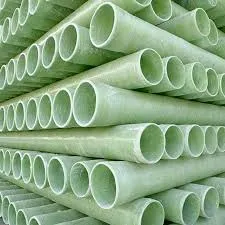
-
 Afrikaans
Afrikaans -
 Albanian
Albanian -
 Amharic
Amharic -
 Arabic
Arabic -
 Armenian
Armenian -
 Azerbaijani
Azerbaijani -
 Basque
Basque -
 Belarusian
Belarusian -
 Bengali
Bengali -
 Bosnian
Bosnian -
 Bulgarian
Bulgarian -
 Catalan
Catalan -
 Cebuano
Cebuano -
 China
China -
 China (Taiwan)
China (Taiwan) -
 Corsican
Corsican -
 Croatian
Croatian -
 Czech
Czech -
 Danish
Danish -
 Dutch
Dutch -
 English
English -
 Esperanto
Esperanto -
 Estonian
Estonian -
 Finnish
Finnish -
 French
French -
 Frisian
Frisian -
 Galician
Galician -
 Georgian
Georgian -
 German
German -
 Greek
Greek -
 Gujarati
Gujarati -
 Haitian Creole
Haitian Creole -
 hausa
hausa -
 hawaiian
hawaiian -
 Hebrew
Hebrew -
 Hindi
Hindi -
 Miao
Miao -
 Hungarian
Hungarian -
 Icelandic
Icelandic -
 igbo
igbo -
 Indonesian
Indonesian -
 irish
irish -
 Italian
Italian -
 Japanese
Japanese -
 Javanese
Javanese -
 Kannada
Kannada -
 kazakh
kazakh -
 Khmer
Khmer -
 Rwandese
Rwandese -
 Korean
Korean -
 Kurdish
Kurdish -
 Kyrgyz
Kyrgyz -
 Lao
Lao -
 Latin
Latin -
 Latvian
Latvian -
 Lithuanian
Lithuanian -
 Luxembourgish
Luxembourgish -
 Macedonian
Macedonian -
 Malgashi
Malgashi -
 Malay
Malay -
 Malayalam
Malayalam -
 Maltese
Maltese -
 Maori
Maori -
 Marathi
Marathi -
 Mongolian
Mongolian -
 Myanmar
Myanmar -
 Nepali
Nepali -
 Norwegian
Norwegian -
 Norwegian
Norwegian -
 Occitan
Occitan -
 Pashto
Pashto -
 Persian
Persian -
 Polish
Polish -
 Portuguese
Portuguese -
 Punjabi
Punjabi -
 Romanian
Romanian -
 Russian
Russian -
 Samoan
Samoan -
 Scottish Gaelic
Scottish Gaelic -
 Serbian
Serbian -
 Sesotho
Sesotho -
 Shona
Shona -
 Sindhi
Sindhi -
 Sinhala
Sinhala -
 Slovak
Slovak -
 Slovenian
Slovenian -
 Somali
Somali -
 Spanish
Spanish -
 Sundanese
Sundanese -
 Swahili
Swahili -
 Swedish
Swedish -
 Tagalog
Tagalog -
 Tajik
Tajik -
 Tamil
Tamil -
 Tatar
Tatar -
 Telugu
Telugu -
 Thai
Thai -
 Turkish
Turkish -
 Turkmen
Turkmen -
 Ukrainian
Ukrainian -
 Urdu
Urdu -
 Uighur
Uighur -
 Uzbek
Uzbek -
 Vietnamese
Vietnamese -
 Welsh
Welsh -
 Bantu
Bantu -
 Yiddish
Yiddish -
 Yoruba
Yoruba -
 Zulu
Zulu
Durable Fiberglass Flanges for High-Performance Industrial Applications and Projects
Understanding Fiberglass Flanges Versatility in Industrial Applications
Fiberglass flanges have emerged as a vital component in various industrial systems, providing a durable and lightweight alternative to traditional metal flanges. Composed of fiberglass-reinforced plastics, these flanges are known for their exceptional strength-to-weight ratio, corrosion resistance, and insulation properties. They find applications across a myriad of sectors, including chemical processing, water treatment, and oil and gas industries.
One of the most significant advantages of fiberglass flanges is their resistance to corrosion. In environments where metal flanges may suffer from rust and degradation due to exposure to harsh chemicals, fiberglass stands as a robust alternative. This property not only extends the lifespan of the flanges but also reduces maintenance costs over time. Industries such as wastewater treatment and chemical manufacturing benefit immensely from using fiberglass components, ensuring that their systems remain functional and efficient without the frequent need for replacements.
Moreover, fiberglass flanges offer excellent thermal and electrical insulation properties. This characteristic makes them ideal for applications where temperature fluctuations are common or where electrical insulation is necessary. In the oil and gas sector, for example, fiberglass flanges can safely handle the transportation of various fluids and gases while minimizing the risk of electrical failures or heat-related issues. This contributes to overall operational safety and efficiency.
fiberglass flange

The manufacturing process of fiberglass flanges involves combining glass fibers with resin, which creates a strong and rigid material. These flanges can be molded into various shapes and sizes, allowing for customization according to specific industry needs. Various standards, such as ANSI and DIN, can be met, ensuring compatibility with existing piping systems. This adaptability contributes to the increasing popularity of fiberglass flanges as industries seek to optimize their operations while adhering to stringent regulatory requirements.
In terms of installation, fiberglass flanges are relatively easy to work with. They are lightweight, which simplifies handling and transport. Additionally, their static properties minimize the risk of damage during installation, compared to heavier metal flanges. This ease of installation can lead to reduced labor costs and improved project timelines, making fiberglass flanges an economical choice for many businesses.
However, while fiberglass flanges offer numerous advantages, it is essential to consider their limitations. They may not be suitable for high-pressure applications where metallic flanges would typically perform better. Furthermore, proper care and installation are paramount to maximize their benefits and ensure longevity in any system.
In conclusion, fiberglass flanges represent a significant advancement in the field of industrial piping solutions. Their combination of corrosion resistance, lightweight structure, thermal and electrical insulation properties, and ease of installation make them an appealing choice for various applications. As industries continue to evolve and seek sustainable and efficient solutions, the use of fiberglass flanges is likely to grow, paving the way for increased innovation and improved processes in industrial operations.









